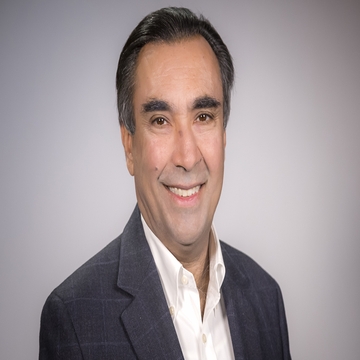Preparing for Disaster: UNM Hospital Participates in Region-Wide Emergency Training

Spreading the Word
Project ECHO Trains Close to 500,000 Providers Worldwide in COVID-19 Treatment
In the age of COVID-19, arming health care workers with the latest treatment knowledge can mean the difference between life and death for their patients.
Project ECHO, a pioneering program based at The University of New Mexico, has trained close to half a million medical workers and first responders around the globe over the past three months in how to deal with and treat COVID-19, says Sanjeev Arora, MD, the program's founder and director.
Through local, national and international partnerships, the training program has been made available to on every continent to all levels of medical providers and first responders.
Project ECHO (Extension for Community Healthcare Outcomes) dramatically increases access to specialty treatment in rural and underserved areas by providing front-line clinicians with the knowledge and support they need to manage patients with complex conditions ranging from hepatitis C, HIV and tuberculosis, to chronic pain, endocrinology, behavioral health disorders, and many others.
The ECHO model launched 17 years ago when Arora, a liver disease specialist, was faced with what seemed to be an insurmountable problem. He had an overbooked practice at UNM of Hepatitis C patients from across the state. There was no way that his day could accommodate them all, and yet their local physicians were hesitant to treat a condition that was a rarity in their practice and affected the body in numerous ways.
"Hepatitis C is a complicated condition," Arora says.
"It made sense that the expertise for treatment would be at an academic medical center, but it also made sense that local physicians could provide excellent care if they only had support and access to consultations with specialists."
He turned to the then-new field of video telecommunications and began conducting two-hour tele-mentoring sessions with physicians across the state. Specialists in Albuquerque - their fields of expertise ranging from internal medicine to psychiatry - would assemble around a conference table at a set time each week. Then physicians would call in and present cases to each other and to university specialists.
"They would learn from the university specialists and from each other. Thousands of patients were treated successfully in their local communities with cure rates that were similar to those at the university," Arora says.
It worked so well with hepatitis C that the university began expanding sessions. Project ECHO now offers training in some 17 different chronic diseases that require complex management.
COVID 19 seems tailor-made for transmission of knowledge in the ECHO format. It is new on the planet, so everyone is facing a learning curve. The deadly, fast-spreading virus can overwhelm medical centers, even as their providers seek answers on how best to provide care. The need for training has been so great that trainings in other areas were temporarily suspended as ECHO concentrated on COVID 19.
At times, the onslaught of new knowledge about the disease can seem almost as overwhelming. Already more than 50 manuscripts are being published daily throughout the world, Arora says.
Project ECHO provides access to knowledge in an easily accessible knowledge that can quickly be scaled up, he says.
Each patient is unique, and every caregiver needs access to the knowledge necessary to ensure good care. Yet the needs of primary care physicians will be different from those of a specialist or an emergency medical technician. A training directed at local health care responders might be followed by one directed at primary care providers.
"We took more than 190 questions in one 2 1/2- hour session alone," Arora says of the trainings.
The questions come quickly:
- What is the newest research on symptoms?
- What if there is clotting of blood vessels?
- How do you treat a cancer patient who also has COVID-19?
- When should a patient be hospitalized?
The ease of translating new research and clinical practices into treatment means workforce capacity can expand exponentially.
"Because of Project ECHO's reputation for innovation, experts from around the world are willing to contribute to the effort," he says.
Training within the ECHO model also sheds light on some of the worldwide health care system's most intractable problems. Participants' questions and concerns reflect the reality of the world they operate in, including disparities in access to health care, rising costs, systemic inefficiencies, and unequal or slow diffusion of best practices.
ECHO was created as a resource to meet a desperate need for complicated case management of patients in a resource-poor state. It is even more critical as medical personnel around the world battle the COVID-19 pandemic Arora says.
"It is a platform designed to amplify the world's best practices all over the world while adapting to local needs, economic constraints and cultural contexts. If we need to train contact-tracing staff, that is what we will do."
"In many ways we are going back to the basics with the new trainings. From the beginning, our mission has always been to support our community by providing them with the resources they tell us they need and this is what is critically needed now."